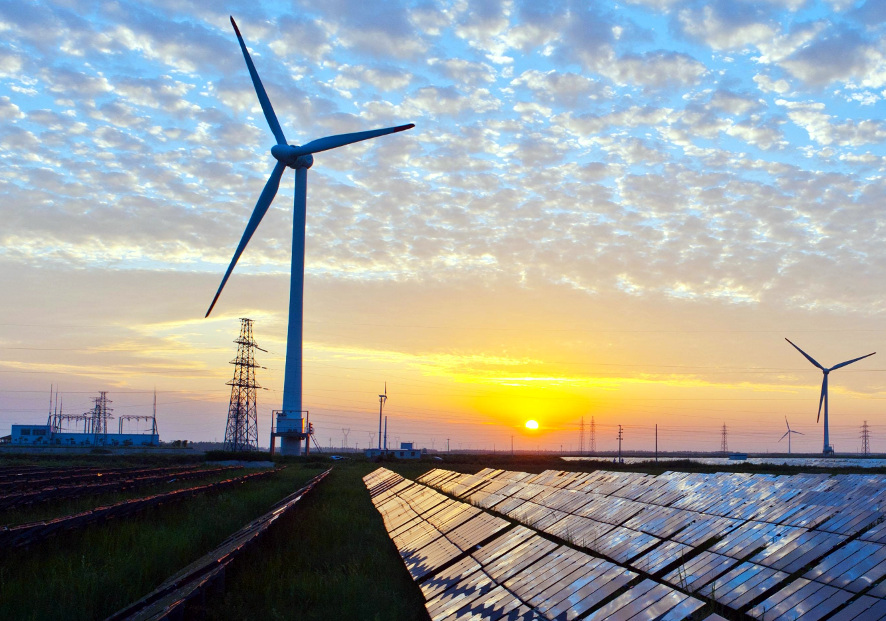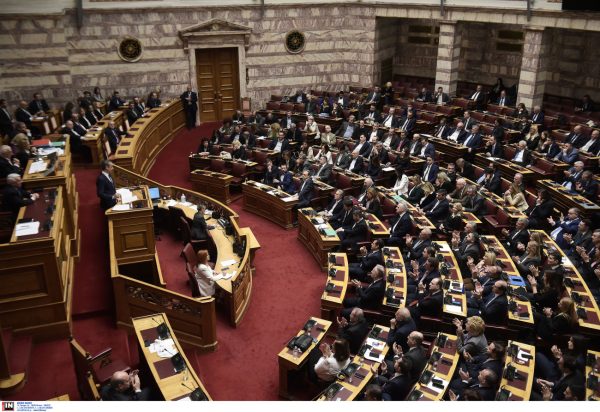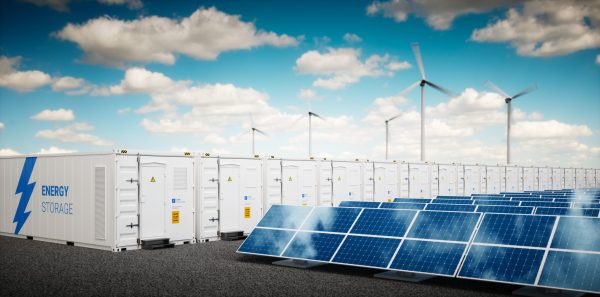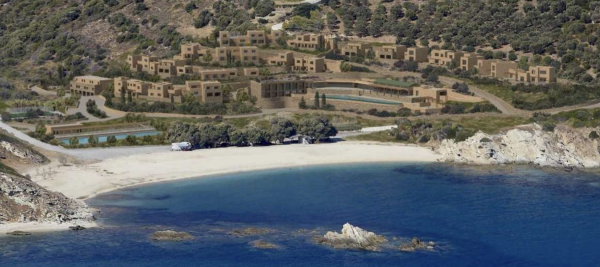
RES can reduce Greece’s dependence on Russian fossil gas much more than extend the life of lignite plants, both in the short and medium term, according to a new analysis by The Green Tank.
Renewables can achieve a much deeper reduction of Greece’s dependence on Russian fossil gas compared to the lifetime extension of lignite plants, both in the short-term as well as in the medium- and long-term, as shown in the new analysis by The Green Tank.
The drastic increase in the use of fossil gas in Greece in recent years rendered the country more vulnerable to the energy price crisis that has been raging since the second half of 2021 and worsened following the start of the war in Ukraine. However, the fact that the largest part of fossil gas is used for electricity production offers more possibilities for an easier and faster independence from Russian gas to Greece compared to other EU Member States.
These possibilities are quantitatively assessed in the new analysis by the Green Tank titled “Electricity production & independence from Russian gas in Greece” through the consideration of two structurally different energy policy choices: a) the extension of the lifetime of existing lignite plants and their operation at the maximum, legally allowed levels and b) the forward-bearing deployment of renewables.
Four scenarios regarding the evolution of the electricity production mix were developed and their potential to substitute Russian fossil gas in the period 2022-2030 was analyzed. The first scenario represents Greece’s current planning, exactly as described in the National Energy and Climate Plan (NECP). The second scenario is based on an extension of lignite plant operation and the maximum utilization of lignite. The third and fourth scenarios maintain the lignite plant retirement time-line exactly as described in the existing NECP, but substitute fossil gas in electricity production with a forward-bearing development of wind and photovoltaics (PV), with the ultimate goal of attaining, respectively, a 70% and 75% share of renewables in gross final electricity consumption by 2030. The main conclusions drawn from the comparative analysis of the 4 scenarios can be summarized as follows:
• The scenario maximizing the use of lignite -up to legally allowed levels- reduces the dependence on Russian fossil gas more than the existing NECP but much less than the two scenarios aiming at a 70% and 75% RES share in the gross final electricity consumption. Taking the quantity of Russian gas that covered domestic consumption in 2021 as a reference point, the average annual reduction in dependence on Russian gas for the period 2022-2030 is 29.8% in the case of the lignite-based scenario, compared to 61% and 68.2%, respectively, for the two RES-based scenarios. Cumulatively, over the four-year period 2022-2025, the lignite-based scenario reduces dependence on Russian gas by 40.7%, while the RES-based scenarios achieve savings of 54.3% (S3-RES70%) and 55.1% (S4-RES75%), assuming the installation of 1 GW of new wind and 1 GW of new PV capacity per year over the three-year period 2022-2024.
• Even in the short term, i.e. within 2022, the installation of 1 GW of wind and 1 GW of photovoltaics reduces dependence on Russian gas more than the scenario favoring lignite use (28.4% vs 23.4%). These levels of new wind and photovoltaic capacity are also in line with the latest available official planning for 2022.
• The lignite scenario leads to CO2 emissions in 2022-2030 that exceed the respective amounts of both the existing NECP (by 34 million tonnes) and the 70% and 75% RES penetration scenarios by 68 million and 73 million tonnes of CO2, respectively; therefore, maximizing lignite use also means derailing the country’s climate budget for the power sector.
• By maintaining current CO2 price levels on the emissions exchange until 2030 (a possibly conservative estimate), the scenario favoring lignite would burden the operating costs of the country’s electricity production system by approximately €5.4 billion and €5.8 billion more than the scenarios aiming at a 70% and 75% RES share in 2030, respectively.
“The results of the comparative analysis show that a shift towards lignite would not sufficiently reduce dependence on Russian fossil gas, while it would also undermine Greece’s climate targets. On the contrary, a commitment to accelerating the deployment of properly sited renewables, especially during the three-year period 2022-2024, constitutes by far the best energy strategy in order to drastically reduce the reliance of the Greek economy on Russian fossil gas. Moreover, this path will lead to much lower CO2 emission costs for Greece’s electricity production system and will keep Greece on track to meet the national climate target of reducing net GHG emissions in 2030 by at least 55%, compared to 1990 levels”, said Nikos Mantzaris, Senior policy analyst of the Green Tank.
The full text of the report is available here.
Latest News

Inflation in Greece at 3.1% in March, Eurostat Reports
Average inflation in the eurozone settled at 2.2%, compared to 2.3% in February

Greece’s Unemployment Rate Drops to 8.6% in February
Despite the overall decline, unemployment remains higher among women and young people.

Jerry Kalogiratos Highlights Key Role of Energy Transition and Data Demand in LNG Outlook
Energy transition and the prospects of LNG were discussed at Capital Link’s 19th Annual International Maritime Forum, during a panel discussion with Jerry Kalogiratos (Capital Clean Energy Carriers Corp.)

Santorini Safe and Ready for a Dynamic Tourism Season
Authenticity, cultural heritage, and genuine experiences at the center of Santorini's new promotional campaign

Electricity Bills: Greece Announces Reduced Tariffs Schedule
Greece will now offer lower electricity rates between 11:00-15:00 and 02:00-04:00

Chevron Confirms Eyeing Natural Gas Exploration South of Crete
Chevron recently declared its intent to explore a third area, south of the Peloponnese.

Evangelos Marinakis: A time of change from which shipping can benefit
Speaking at the 19th Annual Capital Link International Shipping Forum Evangelos Marinakis stressed the challenges that shipping faces today

Retail Trade in Greece Up 2.5% in December 2024: ELSTAT
In January 2025, the General Turnover Index recorded a 2.5% increase compared to January 2024. Compared to December 2024, it recorded a significant decline of 18.4%

Greek Fruit and Vegetable Exports Surge
Greek exporters have expressed concerns over a new draft law in Bulgaria that mandates at least 50% of products in stores to be of Bulgarian origin.

Trump Tower in Greece? Speculation Grows Over Potential Investment
In 2007, the Trump Organization explored the possibility of constructing a skyscraper complex and casino at the former Ellinikon Airport site in Athens











![Τουρκία: Μεγάλες βλέψεις για παραγωγή ηλεκτρικών οχημάτων [γράφημα]](https://www.ot.gr/wp-content/uploads/2025/03/ot_turkish_autos-90x90.png)











![ΕΛΣΤΑΤ: Αυξήθηκε η οικοδομική δραστηριότητα κατά 15,6% το Δεκέμβριο [πίνακες]](https://www.ot.gr/wp-content/uploads/2025/03/DSC9655-2-1024x569-1-90x90.jpg)






![Δασμοί Τραμπ: Αντίστροφη μέτρηση για την «Ημέρα Απελευθέρωσης» – Μνήμες από τη Μεγάλη Ύφεση [γραφήματα]](https://www.ot.gr/wp-content/uploads/2025/04/ot_trump_tariffs2-600x352.png)










 Αριθμός Πιστοποίησης
Αριθμός Πιστοποίησης